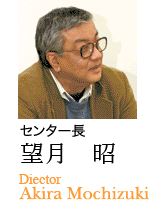 Human services, or “helping people,” seems, like “robbing” or “fighting” to be an activity that has been conducted on Earth since genesis of humankind. There is also no question that various disciplines related to the behavior known as “helping” have arisen from recent times until today under the name of science. People have been saved from the suffering that accompanies labor through the discovery of machines and technology, and are being freed from plague and illness through the development of medicine and engineering. On the other hand, if you ask whether there has been progress in societal behavior of people controlling and being controlled by other people, it is highly questionable. Even today, acts of controlling people through “robbing” or “fighting,” that is, “sinful” manipulations, are too many to count. (Please see Skinner, 1990, “Society without sin” for scholarly analysis of this behavior. [Note I do not know which Skinner this is or the correct title for his work, or the original terms which he uses in English. I suggest you check with the professor who wrote this document.]
Human services, or “helping people,” seems, like “robbing” or “fighting” to be an activity that has been conducted on Earth since genesis of humankind. There is also no question that various disciplines related to the behavior known as “helping” have arisen from recent times until today under the name of science. People have been saved from the suffering that accompanies labor through the discovery of machines and technology, and are being freed from plague and illness through the development of medicine and engineering. On the other hand, if you ask whether there has been progress in societal behavior of people controlling and being controlled by other people, it is highly questionable. Even today, acts of controlling people through “robbing” or “fighting,” that is, “sinful” manipulations, are too many to count. (Please see Skinner, 1990, “Society without sin” for scholarly analysis of this behavior. [Note I do not know which Skinner this is or the correct title for his work, or the original terms which he uses in English. I suggest you check with the professor who wrote this document.] Organize research in Ritsumeikan University on the theme of “Science of Human Service” began in 1999 with a small research project (B1: “Society for the Study of Human Services”) in the Education Science Research Lab (Currently the Institute of Human Sciences) , was renamed as the “Society for the Study of the Science of Human Service,” and was then developed by (then) Ministry of Education’s Academic Frontier Promotion Project into a large scale project of “Human Environment Design for Human Services” exceeding the scope of the college.
In 2005, “Science of Human Services” in Ritsumeikan came to be constructed primarily in the “Human Services Research Center” of the open research center development project. Next, the possibility of the new discipline of “Science of Human Services” will be pursued as a qualitatively different and new phase, in cooperation with university education, overseas researchers, and so on. “Human Services” has come to mean a label for a particular type of professional activity. There was originally a tendency for these to be thought of as a simple application of “the science of recognition” in carefully “knowing” or “measuring” one’s target, or in extreme cases not thought of as a science at all. However, it has gradually become clear that there is actually some distance between the “science of recognition” called “knowing” or “measuring” that form the basis of medicine or engineering, and the “practical science” of “helping.” To speak plainly from the practical standpoint, “knowing” is not necessarily connected with “helping.” There have also been periods in which the activities of “teaching” and “curing,” which have the same practical substance, have also been taken as the chief matter. However, if you are not careful then these will be replaced by “robbing” and “fighting” and become the means for such. I think that the time has come for once again reconsidering the practical action of “helping.” Differing from “teaching, curing” and of course from “knowing, measuring,” we must explore an apparatus for realizing the establishment and continuation of societal relations for the purpose of people’s mutual coexistence, and the social relationships themselves. That exploration will not only be a narrow and specialized occupational field , but also allude to the shape of society itself. I think that this is the final mission for which “Science of Human Services” aims.







